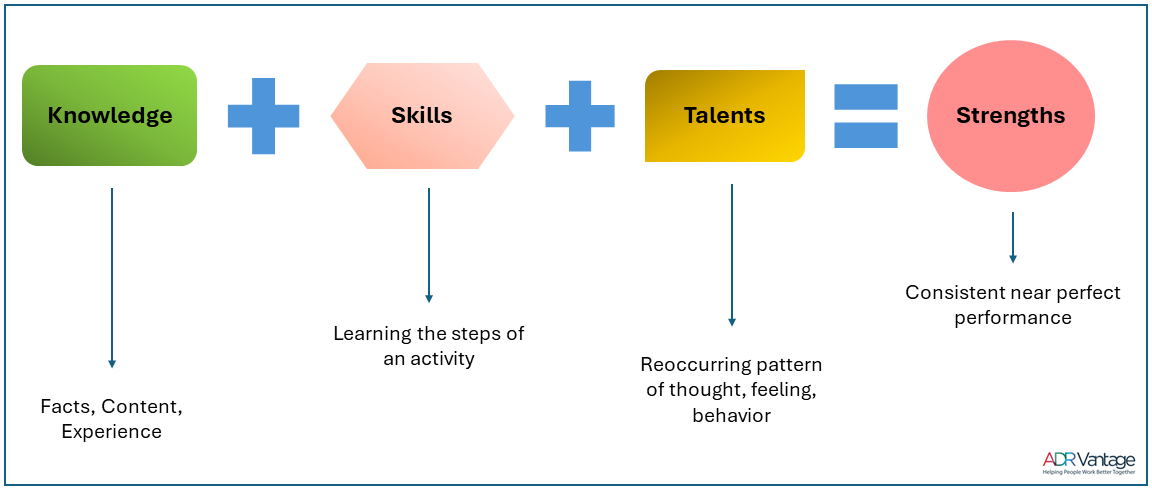Why Strengths Matter:
Have you ever wondered about the secret to a more engaging and fulfilling professional life? According to Tom Rath, author of StrengthsFinder 2.0, the key lies in focusing on your strengths. In fact, he reveals that individuals who concentrate on their strengths every day are six times more likely to be engaged in their jobs and three times more likely to report having an excellent quality of life overall. Now that’s a compelling reason to pay attention to what you’re naturally good at! Even though our brains are wired to find weakness, changing your focus to strengths, while counterintuitive, has some great benefits.
Research from The Wellbeing Practice in the UK suggests that aligning your daily activities with your personal strengths not only boosts your mental tenacity and ability to reach your goals but also reduces stress, anxiety, and depression. It’s a holistic approach to well-being that goes beyond the confines of the workplace.
The impact of focusing on strengths extends to organizations as well. When employees are encouraged to do what they do best, businesses experience more productive work units and higher customer satisfaction scores. In one of the studies, Gallup found that employees feel more confident, self-aware, and productive when focusing on strengths rather than weaknesses. In turn, this leads to higher employee engagement, increased performance, and significantly lower attrition rates. It’s a win-win scenario where individual fulfillment aligns seamlessly with organizational success.

What you can do?
Now that we understand the profound impact of focusing on our strengths, the question arises: How do we continue to develop and leverage those strengths? The journey begins with unraveling the essence of strengths themselves.
Consider this: at birth, your brain boasts about 15,000 connections for each of its 100 billion cells. These connections form the basis of talents, which are recurring patterns of thoughts, feelings, or behaviors that can be productively applied in daily life. Genetic inheritance and early experiences reinforce certain connections, making some talents feel more natural than others. Unfortunately, many talents wither away when left ignored and unused.
The key lies in transforming these innate talents into strengths. A strength, in this context, means achieving consistent near-perfect performance in a particular activity. Once you’ve identified your dominant talents, the next step is acquiring the knowledge and skills needed to turn them into bona fide strengths.
To do this, seek out experiences, roles, or stretch projects that align with your talents. Immerse yourself in relevant knowledge through reading, podcasts, webinars, and other educational avenues. Additionally, actively engage with mentors, coaches, or accountability buddies to provide support and guidance. Don’t underestimate the power of technology as a tool to enhance your abilities. You might enroll in a free online university course, set up and play with your own Chat GPT account, or even try your hand at learning a new virtual tool or platform.
For instance, let’s say you want to enhance your talent for public speaking. Research and learn about effective speech techniques, formats, and strategies. Then, apply this knowledge through practice, potentially using support structures like speech outlines, note cards, and constructive critiques from others. These intentional efforts will help you convert your public speaking talent into a formidable strength.
In conclusion, the path to personal and professional fulfillment lies in understanding and cultivating your strengths. By recognizing and developing your innate talents, acquiring relevant knowledge, and applying that knowledge through practice, you can unlock the full potential of your strengths, leading to a more engaged and satisfying life.
If you’d like to learn more about your own strengths, check out the Clifton Strengths assessment or the VIA Character Strengths assessment
